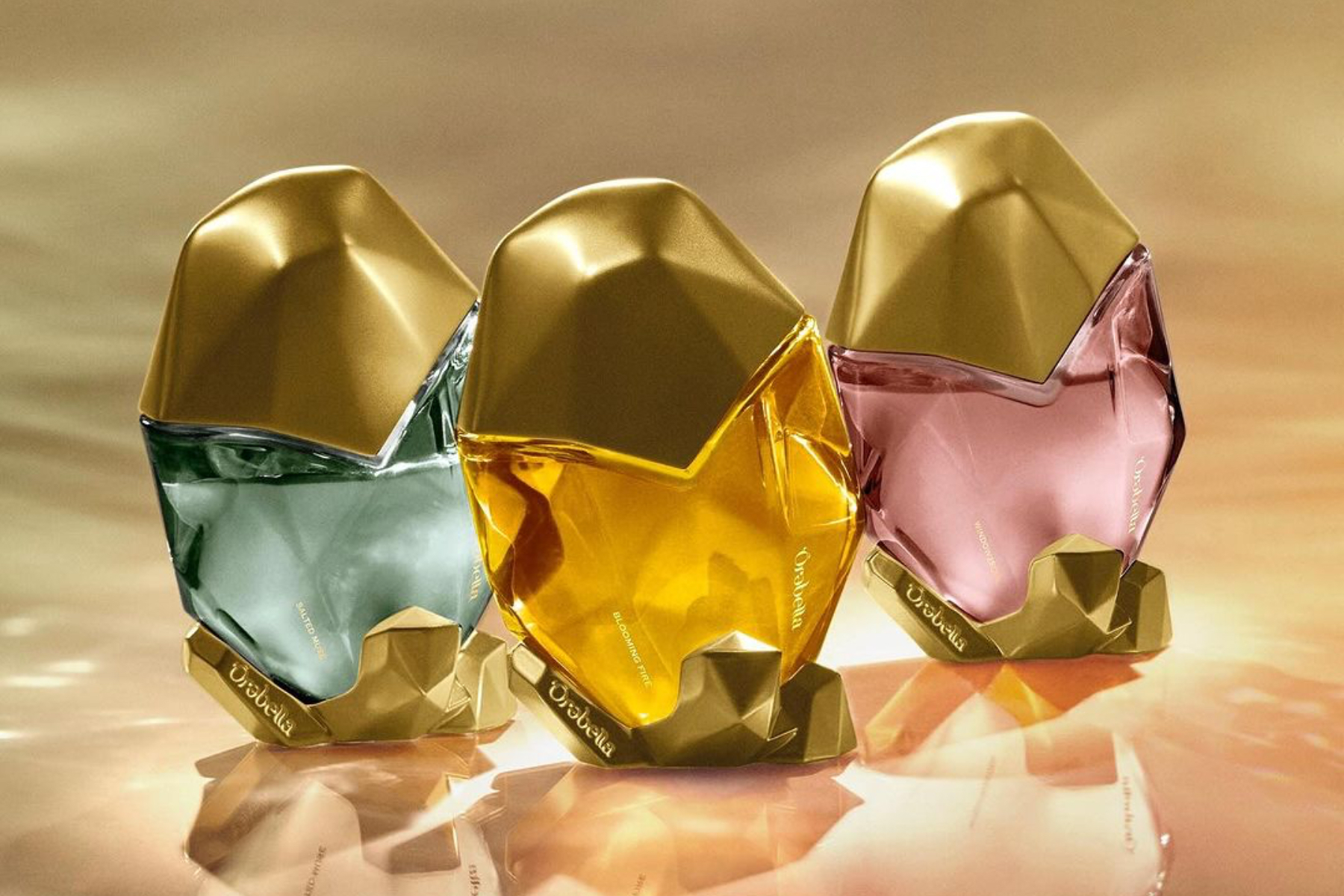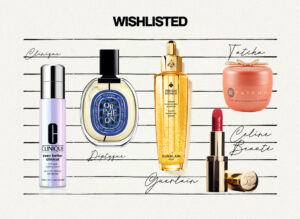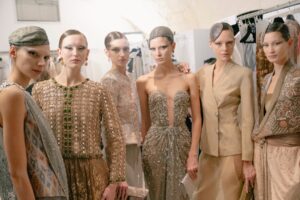Beyonce, Rita Ora and Bella Hadid are the latest members to enter the ‘celeb beauty brands’ club. In 2022 alone, more than 60 celebrity beauty brands were launched, including Ariana Grande’s R.E.M Beauty and Hailey Bieber’s Rhode. While some of them are meeting expectations and catering to their target audience, it’s hard to ignore the fact that the majority might just be using this as a way to stay relevant.
Because let’s be honest, once they saw the massive profits that could be made from their fans, they didn’t hesitate to jump on the bandwagon. As pointed out by The Guardian’s Beauty Columnist Jessica DeFino a few years ago, “We have hit the peak of celebrity beauty brands. It all boils down to money and control.”
The latest names in the game
On May 2nd, model and activist Bella Hadid introduced her fragrance brand call, Ôrəbella – featuring three genderless scents – Blooming Fire, Window2Soul and Salted Muse. These scents are said to be crafted using aromatherapy to enhance your mood and awaken your personal aura. Within a short span of time, Ôrəbella has gained significant attention on the internet. The debut has garnered several positive reviews; however, one particular comment stood out: “Outdated ideas.” While I don’t believe it is entirely outdated, it seems that celebrities may be lacking fresh ideas or simply following trends without much thought.
One month prior, Rita Ora announced her hair care line, Typebea – where she teamed up with beauty expert, Anna Lahey, to focus on hair growth and health. While Lahey is renowned in the industry as the founder of Vida Glow, one question remains: how much expertise does Rita Ora bring to the table beyond her celebrity name?
The announcement follows Beyonce’s introduction of her Cécred hair line. And while Beyonce’s products are likely effective, can we accurately measure the success of the brand without associating it with Beyonce’s over-the-top status? Probably not. And as Kristin Voss of KVoss points out, “Most celebrities simply attach their names to products without genuine involvement.” And this statement alone is enough for fans to start prioritising product quality over blind loyalty to their favourite stars.
From hype to reality
In the early 2000s, there is no denying that celebrity beauty brands were highly sought after; like Mariah Carey and Britney Spears’ limited-edition perfumes. In contrast, their relevance has diminished significantly in today’s context, and once the initial hype dies down, these brands struggle to maintain their popularity.
Look at Ariana Grande’s R.E.M Beauty, which failed to sustain its momentum after its highly anticipated debut in 2022. There have been no recent product launches from the brand, indicating a lack of growth and innovation. Similarly, JLo Beauty has resorted to recycling old photos on their official Instagram page to promote their products, further highlighting the stagnation of the brand. It is unfortunate to admit that these brands lack long-term planning and fail to cater to everyday consumers who rely on drug stores or retailers like Sephora for their beauty needs. Instead, their marketing strategy relies heavily on exploiting the hype and loyalty of their fanbase to drive sales.
Where credit is due
However, it is important to acknowledge that where there are disadvantages, there are also advantages. There are certain celebrities who are making a significant contribution to the beauty industry, such as Rihanna with her Fenty Beauty line, Selena Gomez with Rare Beauty, Hailey Bieber with Rhode, and Rosie Huntington-Whiteley with Rose Inc. These successful brands have one thing in common – they do not rely on cliché statements like “I created products because I noticed a gap” to establish their brand. Instead, they prioritise building a genuine connection with their fans and consumers.
In 2017, Rihanna introduced a foundation line consisting of 40 different shades, a feat that had never been accomplished by any other brand. The inclusivity and diversity that are deeply embedded in her brand created a unique market and a demand for her products. Fenty Beauty became a game-changer overnight.
And Rhode’s rapid expansion in the beauty industry can be attributed to its lavish marketing strategies. Through the effective use of Hailey’s influence and partnerships with marketing professionals, the brand strategically harnessed the power of social media platforms. The brand’s lip case, which has captured the hearts of many, is a prime example of their success.
So apart from these successful brands, what else is there to talk about? The majority of them lack innovation and simply replicate existing products on the market, relying on their loyal followers to make purchases.
It’s about time for celebrities to stop churning out beauty brands without any genuine intentions or long-term dedication. It’s becoming increasingly inauthentic. Furthermore, it’s common knowledge that celebrities often undergo cosmetic and surgical procedures to achieve their desired looks. No serum can magically make you look twenty years younger, and yes, we know, you have botox.
Related articles:
– Why are there so many celebrities with their own makeup brands?
– 9 beauty brands founded by Malaysian personalities
– 7 Thai celebrities that are taking the beauty world by storm










